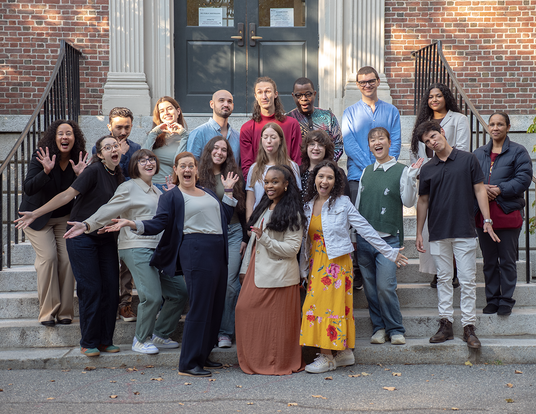Imposter Syndrome
Notes from the Dudley Underground by Jackie Yun

The “impostor phenomenon” (aka “imposter syndrome”) was first described by American clinical psychologists Pauline Clance and Suzanne Imes in 1978 as an “internal experience of intellectual phoniness” experienced by those with “outstanding academic and professional achievements.”
Despite their numerous achievements and accolades, people experiencing the impostor phenomenon maintain a “strong belief that they are not intelligent; in fact, they are convinced that they have fooled anyone who thinks otherwise.” Those with impostor phenomenon discount their own efforts and talents when explaining their successes, instead citing situational factors like luck, timing, or inadvertently fooling others about their intelligence.
Clance and Imes first used the term to describe the highly successful Caucasian women they encountered in their clinical practice in the United States. In the 40 years since, scientists have studied a much more diverse sample, including men and individuals from varying ethnic and cultural backgrounds. Sometimes called “impostor syndrome,” the impostor experience is not considered a psychological disorder, so experts tend to prefer the term “impostor phenomenon.”
In the Office of Student Services, we talk about “impostor” experiences a lot. Given that the “impostor phenomenon” is especially likely during periods of life transition, it is not surprising that many, many graduate students come to the office to talk about how they feel like frauds or assume that they are underprepared compared to their classmates. These thoughts can be overwhelming, and it can be comforting to know that many students feel the same way.
Here are some strategies to help navigate impostor feelings:
1. YOU earned your spot here. There are no admissions mistakes. You were selected because people thought you could do good work and contribute to your field’s knowledge.
2. Try not to compare yourself to others. All GSAS students have different backgrounds, experiences, and talents. If you were all the same, this place would be boring! Try to remember the unique and special contributions that you make to your field and this community.
3. Talk to mentors and trusted resources. Sometimes just talking out loud about impostor feelings can help you realize how these feelings might be holding you back.
4. Don’t hide! These feelings can be intense, and they can make us lose our voice. Don’t hold yourself back from participating in class, asking questions, or having conversations with professors. There is no such thing as a dumb question; we are all learning here together.
5. Don’t beat yourself up! We are our own harshest critics. It is so important to be kind to yourself. Mistakes happen. Say daily affirmations, reward yourself, and remember that no one is perfect.
You are always welcome to come by the Office of Student Services to talk about these feelings. Another excellent resource for addressing feelings of being an “impostor” is Harvard’s Bureau of Study Counsel (BSC) at 5 Linden Street. To schedule an appointment with one of the BSC counselors, please call 617-495-2581 or e-mail bsc@harvard.edu.
Get the Latest Updates
Join Our Newsletter
Subscribe to Colloquy Podcast
Simplecast





